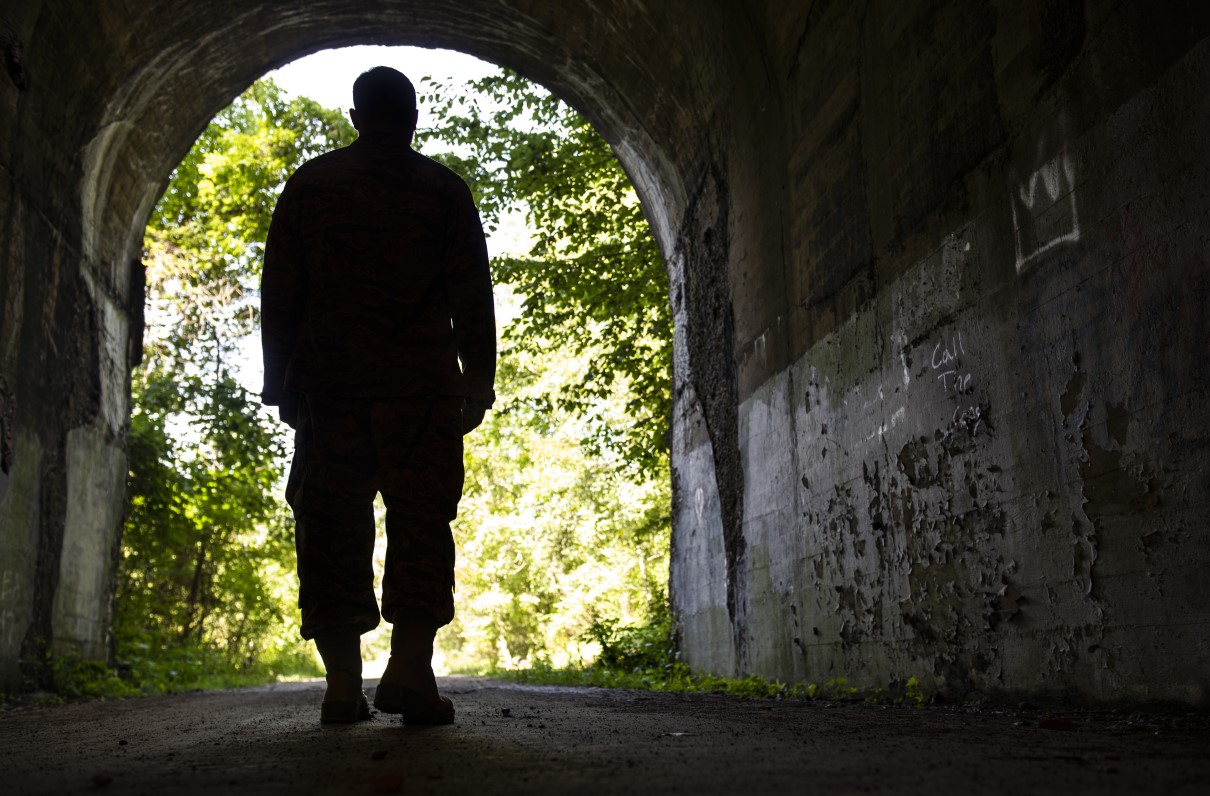Editor’s note: This article by Patricia Kime originally appeared on Military.com, a leading source of news for the military and veteran community. If you or someone you know is in crisis, contact the Veterans Crisis Line at 1-800-273-8255 (press 1) or via www.veteranscrisisline.net.
Suicidal thoughts and suicide attempts among veterans declined significantly in the first 10 months of the COVID-19 pandemic, particularly for those under age 65, a study published Aug. 25 in the journal JAMA Psychiatry found.
However, while the group of veterans who contracted COVID-19 during the course of the study period was small, they reported more than twice the frequency of suicidal thoughts, something the authors described as needing "future research to examine the potential link between COVID-19 infection and suicidal behavior."
The study, which surveyed more than 3,000 veterans in November 2019 and again a year later -- 10 months after the pandemic was declared -- found that suicidal ideation, defined as suicidal thoughts or ideas, decreased for the entire group by about one-fifth, from 10.6% of those surveyed to 8%.
The declines were most significant -- by approximately one-third -- in the 18 to 44 age group, which saw suicidal ideation drop from 22% to 15.4%, and the 45 to 64 age group, which dropped from 15.7% to 10.3%.
Older veterans were the cohort that saw little change, according to the study "Prevalence and Trends in Suicidal Behavior Among U.S. Military Veterans During the COVID-19 Pandemic."
[RELATED: Mental Health Resources Available for Veterans Unsettled by Afghanistan News]
Mental health professionals have had concerns about the strain of the pandemic on veterans, who are at a higher risk for suicide due to factors such as chronic physical and mental health conditions and loneliness.
The adjusted suicide rate among veterans has risen nearly 30% since 2010. Experts feared that the pandemic, which has led to social isolation and decreases in veterans seeking medical care, would create an unprecedented spike in suicides, the authors, many of whom are university researchers who treat patients at the Department of Veterans Affairs, noted.
Instead, they found that suicidal ideation increased in just 2.6% of those surveyed, or 82 veterans.
"These results suggest that despite grim forecasts about the COVID-19 pandemic possibly creating a perfect storm for suicidal behavior, the prevalence of suicidality did not appear to increase among military veterans nearly 10 months into the pandemic," the authors wrote.
The study found that, among the 82 veterans who reported an increase in suicidal thoughts, most reported having lifetime post-traumatic stress disorder, low social support and issues with alcohol.
[RELATED: MOAA Member Works for Company Striving to Increase Access to Mental Health Services]
The highest risk factor for developing suicidal thoughts during the pandemic was having previously attempted suicide. Notably, the third-highest risk factor was whether the veteran had contracted COVID-19, according to the survey.
That finding prompted the authors, led by Brandon Nichter, with the Department of Psychiatry at the University of California-San Diego, to call for more research on the relationship between COVID-19 and suicidal ideation.
The study authors noted that, of those respondents who had COVID-19 and reported suicidal thoughts, most characterized their illnesses as "not severe," raising the possibility that even asymptomatic to moderate COVID-19 infection may be associated with elevated suicide risk.
But, the researchers said, it is possible that those who reported increased suicidal ideation and also contracted COVID-19 may have had unrecorded or unmeasured health conditions that put them at risk for both.
The majority of those surveyed for the data set used by researchers were male -- nearly 92% -- and 79.3% were white. They had an average age of 63. However, enough younger veterans responded for the researchers to conclude that the decline was significant in their age groups.
They theorized that younger veterans may have been able to better garner social support during the pandemic than seniors and may be more resilient to stressors and adversity as a result of their military service.
The study is significant because it is the first to look at veterans' suicidal tendencies during the pandemic. It also is the first to suggest that having COVID-19 may be associated with suicide attempts or thoughts.
More than 307,000 veterans in the VA health care system have tested positive for COVID-19, including 13,472 who have died.
The authors also cautioned that their conclusions may be tempered because of several constraints on the data: the survey likely underestimated suicidal ideation, given possible reluctance to speak up by those surveyed; that suicidal ideation may have emerged later in the pandemic and has yet to be studied; and that the cohort was mostly older, male and white, requiring more research to determine whether the findings apply to the more general veteran population.
During the survey, eight respondents attempted suicide. The research did not note whether any of them had COVID-19.
Want to Help Servicemembers in Your Community?
Learn how you can make a difference with your local chapter.
